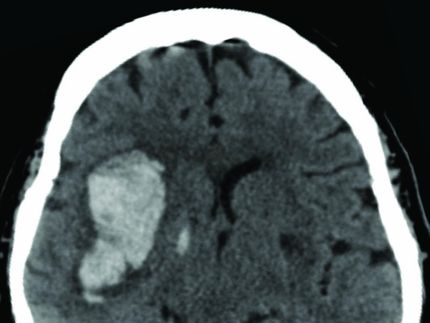Friedrich Luft Received Novartis Award for his Research on Hypertension
Luft's group identified a specific gene region on chromosome 12 as a reason
Advertisement
Physician and hypertension researcher, Professor Friedrich C. Luft, from Berlin, Germany has received the Novartis Award for Hypertension Research from the American Heart Association in Tuscon, Arizona, USA. He was honored for his research on the genetic causes of hypertension, the effects of perturbed electrolyte homeostasis, and the mechanisms of resulting target-organ damage. The award, worth $20,000, is the most important prize in hypertension research given by the American Heart Association and the Swiss pharmaceutical company Novartis each year. Luft is the director of the Experimental and Clinical Research Center, a joint endeavor established by the Max Delbrück Center for Molecular medicine (MDC) and the Charité - Universitätsmedizin, in Berlin, Germany.

Novartis Award for Professor Friedrich Luft
David Ausserhofer / MDC
Luft's group identified a specific gene region on chromosome 12 in a family from Turkey in which half of all family members have severe hypertension resulting in stroke before the age of 50. All affected persons also have brachydactyly (short fingers), a not immediately obvious connection.
The group has not yet elucidated the precise cause for this syndrome. However, the finding that affected persons have a major defect in baroreflex buffering (detecting blood pressure and reacting to it) is a novel phenotype.
Professor Nihat Bilginturan from the University of Ankara, Ankara, Turkey, first described this syndrome in the international literature and is a co-investigator on the project. Luft's current MDC partners in this project are Norbert Hübner and Nikolaus Rajewsky.
Luft was also recognized for research done 30 years ago. The notion that the kidney is the final common pathway of blood pressure regulation, a concept termed "pressure natriuresis", stems from seminal research of Ewald Selkurt, Arthur Guyton, and others from the 1950's and later. However, relevance to normal humans had not been shown.
Luft and co-investigators, as well as co-subjects, performed balance studies in ranges of salt (NaCl) intake from 250 mg (knife tip) to more than 80 g (swallow the whole salt shaker and more). The idea was to study the effects of salt on blood pressure and more importantly, renal mechanisms of salt excretion. The findings defined the renal "pressure-natriuresis curve" for humans.
The studies also gave insight into the propensity to hypertension in salt-resistant and salt-sensitive forms. Finally, the studies indicated potassium as a factor in influencing the effects of salt.



























































